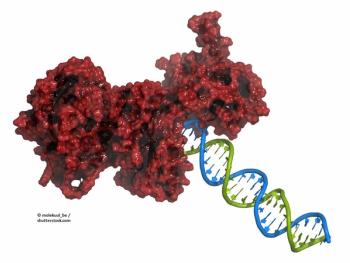
A pooled analysis of two randomized trials found that neoadjuvant chemotherapy and upfront debulking surgery yield similar outcomes in patients with advanced tubo-ovarian cancer, except in some settings.

Your AI-Trained Oncology Knowledge Connection!


A pooled analysis of two randomized trials found that neoadjuvant chemotherapy and upfront debulking surgery yield similar outcomes in patients with advanced tubo-ovarian cancer, except in some settings.

Researchers tested whether 2 years of maintenance therapy with olaparib would improve outcomes in advanced ovarian cancer patients.

Regular users of low-dose aspirin appear to have a reduced risk of developing ovarian cancer, according to a new study.

A study shows that combined hormonal contraceptive use is associated with a significant reduction in the risk of ovarian cancer.

A new proteomic analysis found that CT45 is an independent prognostic factor in patients with high-grade serous ovarian cancer, and a potential target of immunotherapies.

Adjuvant radiation therapy provides a local control benefit in stage III endometrial carcinoma patients, as strongly suggested in retrospective and prospective series.

The routine use of adjuvant radiation therapy in stage III endometrial cancer patients is not supported by the current literature and should not be employed universally in this group of patients.

Certain malignancies may possess a common and targetable matrix response, which affects disease pathogeneis, according to a study in Cancer Discovery.

Dr. Dmitriy Zamarin speaks with Cancer Network about the findings of a phase II trial in platinum-resistant ovarian cancer patients.

New research examines the mechanisms underlying why most patients with high-grade serous ovarian cancer develop resistance to PARP inhibitors.

Researchers have developed a mouse model of high-grade serous carcinoma that could prove useful in the preclinical testing of prevention strategies for ovarian cancer.

Optical coherence tomography and multispectral fluorescence imaging have demonstrated promising results in the early detection of ovarian cancer.

Breast and gynecologic cancer patients undergoing chemotherapy may experience improvement in cancer-related fatigue with integrative medicine approaches.

Dr. Ranjit Manchanda speaks with Cancer Network about using population testing to predict and prevent gynecologic cancers.

A meta-analysis finds that postmenopausal bleeding occurs in approximately 90% of women with endometrial cancer.

Sorafenib combined with topotecan and then continued as maintenance therapy offered a significant improvement in survival outcomes in women with platinum-resistant ovarian cancer.

Apatinib combined with etoposide offers promising efficacy in patients with platinum-resistant ovarian cancer.

The regimen consisting of carboplatin and paclitaxel represents the backbone of ovarian cancer treatment. Here, we reflect on our experience administering the carboplatin/paclitaxel regimen to scores of ovarian cancer patients over the past decade and a half.

The intratumoral vasculature of high-grade serous ovarian cancer does not appear to undergo significant changes during disease progression.

Recent use of aspirin or NSAIDs is associated with improved ovarian cancer–specific survival.

In an interview with Cancer Network, Lorraine Drapek describes a multidisciplinary program at MGH to support vaginal and sexual health post RT for GI and gynecologic malignancies.

The approval of PARP inhibitors has caused a paradigm shift in ovarian cancer management and a challenge for clinicians, who must decide how best to use these agents in individualized treatment.

In women with ovarian cancer, those with early life adversity and anxiety had more dysregulation of cortisol, suggesting they may be at risk for more negative outcomes.

New data suggest adding bevacizumab to chemotherapy may prolong PFS in patients with recurrent ovarian cancer.

The noninferiority of neoadjuvant chemotherapy vs upfront surgery could not be confirmed with regard to overall survival in patients with ovarian, tubal, and peritoneal cancers.